Rare 1934 Desoto Airflow Art Deco Style Sedan Like Chrysler Airflow
- Price:
- Location: Elmer, New Jersey, United States
- Make: DeSoto
- Model: Desoto
- SubModel: Airflow
- Type: Sedan
- Trim: Airflow
- Year: 1934
- Mileage: 90,000
- Color: Green
- Engine size: 6
- Number of cylinders: 6
- Fuel: Gasoline
- Transmission: Manual
- Drive type: rwd
- Interior color: Tan
- Vehicle Title: Clear
1934 DeSoto Desoto Airflow Description
Extremely Rare Opportunity1934 Desoto SE Airflow Sedan
Survivor Car
Recently pulled from long storage! Never advertised before. This Desoto airflow is in original condition with some area of paint touch up from years ago. The Desoto runs and idles excellent. They brakes will need repair to make it a driver. E-brake works for shipping purpose. Exterior and undercarriage are rust free with no patch work. Paint shows wear. Original interior is all there and decent for a driver quality car. Headliner has staining and should be replaced.
The 'Airflow' design, applied to both Chrysler and its sister marque DeSoto, is one of the most important cars of all time. At the same time it was both an incredible engineering success, as well as a crushing commercial failure. While largely shunned by the car buying public, the radical streamlined design of the Airflow was truly ahead of its time. The Airflow was the first mass-production automobile design with the entire passenger compartment moved forward within the wheelbase and the engine placed over the front axle instead of behind it.
This car is a 1934 DeSoto SE Airflow 4-door sedan. These were the first cars with unibody construction. Also the first car with rear seat forward of the rear axle instead of over the rear axle. Engine sat between the front wheels.
The Airflow automobiles featured the beginning on unibody construction and were the first cars to place the motor over the front axles - providing a more comfortable ride.
The DeSoto SE sedan was powered by a 241 cubic-inch six-cylinder motor that developed 100 horsepower. Race driver Harry Hartz set 32 stock car records driving a DeSoto Airflow at Muroc Dry Lake Bed in California.
The DeSoto Airflow was an automobile built by Desoto during model years 1934, 1935 and 1936. DeSoto received the then-revolutionary Airflow model due to its price structure relationship to larger and more expensive Chrysler brand cars. The 1934 Airflow models are noted for their unique styling. They generate interest for their engineering innovations. It has a 115.5in (2,934mm) wheelbase
This aerdynamic, radically designed car debuted to much fanfare alongside its more luxurious stablemate, the Chrysler Aitflow. From the front bumper back, the Airflow's design represented the first major attempt to smooth away the wind catching objects and channels found on cars of the era. Headlights were moved from their traditional pods forward of the radiator, and housed in flush mountings on either side of the broad waterfall-styled grille, which lacked the traditional upright radiator throat and decorative cap ornament. In place of the flat windshield that most cars had (and which caught the brunt of on coming winds as cars moved through the atmosphere), the Airflow split the windshield into two panes of glass, each angled to better redirect the air around them. Front and rear fenders received smoother, more form fitting curves. In the rear, Airflows encased the rear wheels through the use of fender skirts.
In addition to the benefits of its smoother exterior design, which translated into a quieter passenger compartment than on previous DeSoto models, the car featured wider front seats and deeper back seats with more leg room. Passengers sat on seats which were a good distance from either axle. They reminded one of a Victorian Sofa
Because of the car's Unibody construction, passengers rode within the frame of the car, not on top of the car as they did with other American makes. It also boasted a stiffer body and better weight distribution through the engine placement over the front wheels, in contrast to the common practice of placing the center of the engine's gravity just behind the front wheels. The automotive press gave the cars positive reviews for their handling and acceleration.
DeSoto (and Chrysler) touted all of its Airflow bodies as "futuristic" in an age of streamlining, the public found the cars to be too different in a time of economic uncertainty . While Chrysler's cars looked better, with the Airflow bodies stretched over their longer wheelbases, the shorter 115 DeSoto wheelbase made the cars seem bulky. Walter P Chrysler, who had been a strong proponent of the Airflow project, was stunned by the lack of interest in the car, which he believed pointed the way for the future of American cars.
Interest in the Airflow was strong when it was introduced. Unfilled orders for it totaled 15,580 on April 30, 1934. This was 48.3% of comparable Chrysler and DeSoto shipments in 1933.
In May 1936 the DeSoto Airflow began to be promoted in some 435 newspapers in the United States. The highly streamlined car was advertised together with more traditional Airstream cars in general magazines and by itself in class magazines. The DeSoto advertising account was managed by J. Sterling Getchell.
Rumors persisted that the Aiflow's body was unsafe. Tests showed its all-steel unibody construction safer than those of other cars made at the time (most automotive manufacturers still used wooden sub-framing over which steel skins were applied for their car bodies). In one widely distributed advertising film shown in movie theatres, an empty Airflow was pushed off a Pennsylvania cliff, falling over 110 feet (34m); once righted, the car was driven off, battered, but recognizable. Still, the myth persisted that Airflows were unsafe.
While Chrysler still built a more familiar-looking car in 1934, DeSoto only offered the Airflow. Despite selling more Airflows than Chrysler, Chrysler sold more cars overall with the majority being the redesign of the 1933 "regular" Chrysler.
For 1935 and 1936, Chrysler added the more traditional Desoto Airstream, which it shared with Chrysler, and DeSoto regained a portion of its lost market share. While the Airflow was still offered, the bulk of DeSoto's sales were Airstreams and the Airflow was relegated to the back of the DeSoto catalog.
Those buyers who did choose the Airflow found that their models carried a more prominent peaked grille design. Other than cosmetic changes (hood louvers, etc.) the cars remained unchanged.
While Chrysler continued to use the Airflow body through 1937, Chrysler discontinued the DeSoto Airflow in 1936 to focus on more traditional designs and the higher sales volume that they brought the divisionAirflow History Video
Serious offers only please.
A $500 deposit requiredat endof auction end. PayPal, Money order, Cash or Cashier's Check only . Car needs to be paid in full within7 days unless prior arrangements are made. Buyer to arrange and pay for shipping. I will assist with arrangements if needed. Car will not be released until funds have cleared.
THERE ARE OVER 60 HDPHOTO'S BELOW. DEPENDING ON YOU DISPLAY FORMAT YOU MAY HAVE TO LOOK FOR A SECOND SCROLL BAR ON YOUR RIGHT TO VIEW THE PHOTO'S. YOU CAN ALSO CLICK ON ANY PHOTO TO VIEW MORE!
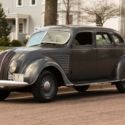 1934 Desoto Airflow Sedan - Original One owner from new
1934 Desoto Airflow Sedan - Original One owner from new
Mileage: 84,678
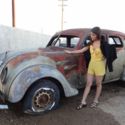 1936 Chrysler DeSoto Airflow S2 sedan suicide doors AZ CA car ratrod potential
1936 Chrysler DeSoto Airflow S2 sedan suicide doors AZ CA car ratrod potential
Mileage: 100000
 1934 DeSoto Airflow
1934 DeSoto Airflow
Mileage: 36,080
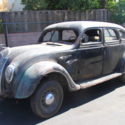 1936 Desoto Airflow S2 Sedan, excellent restoration project car, very rare!
1936 Desoto Airflow S2 Sedan, excellent restoration project car, very rare!
Mileage: 100,000
 1934 Desoto Airflow Original paint Low Miles Survivor
1934 Desoto Airflow Original paint Low Miles Survivor
Mileage: 81,172
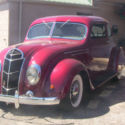 1935 DeSoto Airflow Coupe RARE
1935 DeSoto Airflow Coupe RARE
Mileage: 3,000
Mileage: 100,000
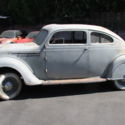 Rare 1935 Desoto Airflow SG Coupe - ultra rare icnic car in automotive history
Rare 1935 Desoto Airflow SG Coupe - ultra rare icnic car in automotive history
Mileage: 100,000
Mileage: 100,000
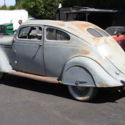 1935 Desoto Airflow SG Coupe, excellent restoration project car, ultra rare!
1935 Desoto Airflow SG Coupe, excellent restoration project car, ultra rare!
Mileage: 100,000
